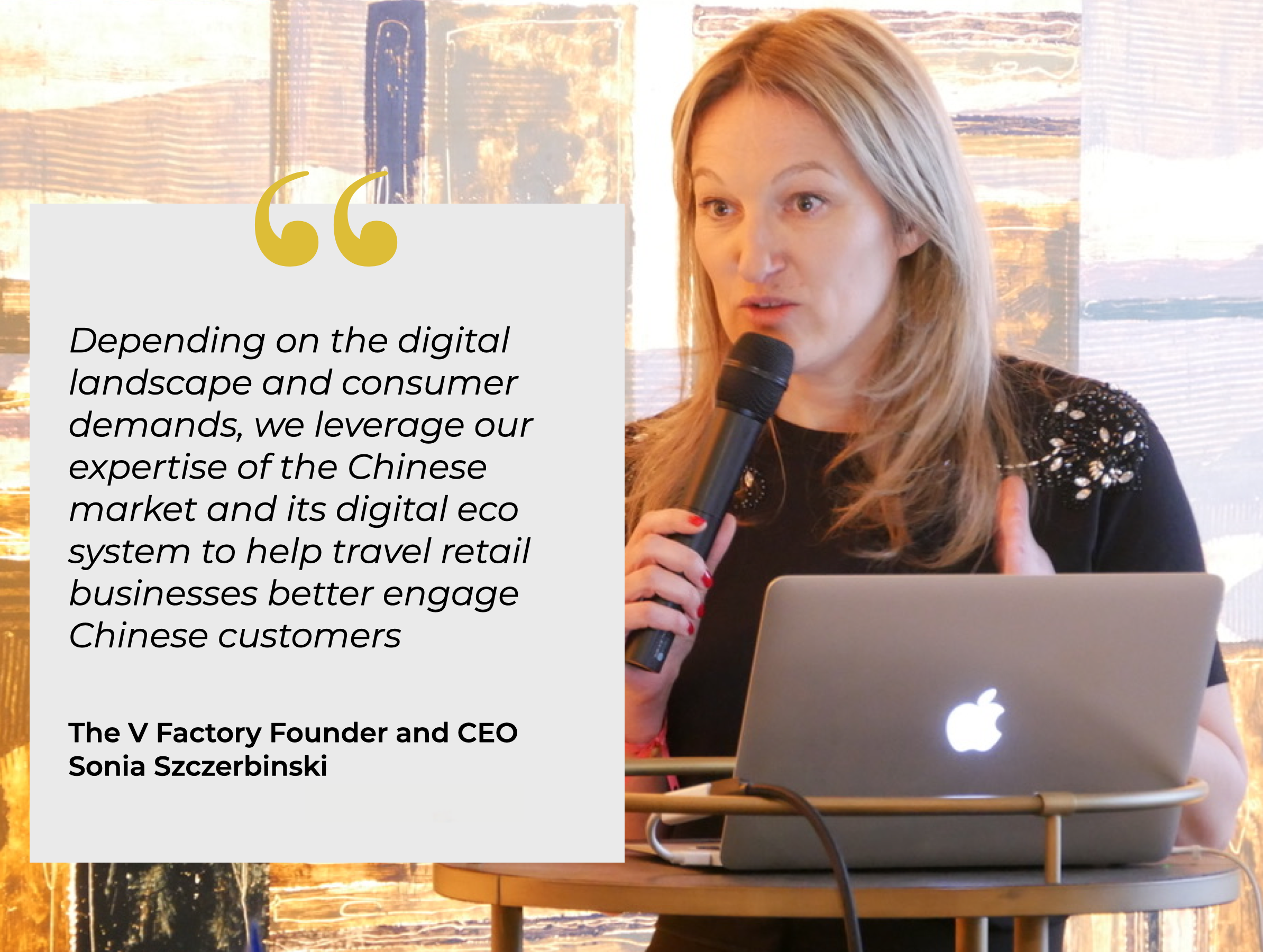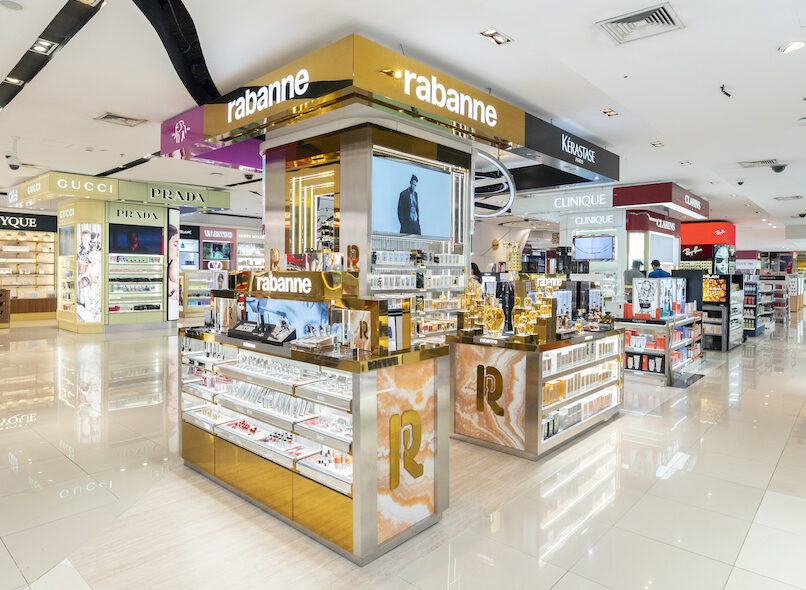
Buoyed by Hainan’s expanded offshore duty free shopping policy, many travel retail industry stakeholders are looking to China to kickstart their recovery.
Over the last few months, leveraging the Chinese opportunity has become synonymous with embracing the accelerating social-selling and livestreaming trend in China. However, as the digital landscape continues to evolve, how can brands, airports and retailers curate a China-specific strategy that anticipates fast-changing market trends and consumer demands?
Enter The V Factory — a Paris and Shanghai-based digital consultancy specialising in helping brands maximise the WeChat and omnichannel opportunity in China.
The V Factory offers training sessions, marketing consultancy services and operational management to help brands better engage with Chinese audiences before, during and after their trip.
In this interview, The V Factory Founder and CEO Sonia Szczerbinski outlines exactly how her company support travel retail industry stakeholders add value to their digital strategies in China.
“The Chinese market is evolving extremely quickly — even more so over the last few months — especially in terms of usage and consumption patterns,” said Szczerbinski. “It is more important than ever to understand the Chinese market, adapt to changing market demands in China and be prepared for the rebound of outbound travel market.”
The V Factory is a Silver Partner of The Moodie Davitt Virtual Travel Retail Expo, where it is exhibiting in #Virtual Stand OC-S2. It is also hosting two webinars during the pioneering virtual event where it will teach brands how to respond to the changing demands of China’s digital consumer.
Szczerbinski adds, “Throughout the pandemic, ecommerce, short video, livestreaming and one-to-one interaction tools have become essential in daily life. It opens a range of digital channels to improve the way we interact with customers before, during and after their trip. It’s not just about content and sales, but also about service, experience and CRM.
“Depending on the digital landscape and consumer demands, we leverage our expertise of the Chinese market and its digital ecosystem to help travel retail businesses better engage Chinese customers.”
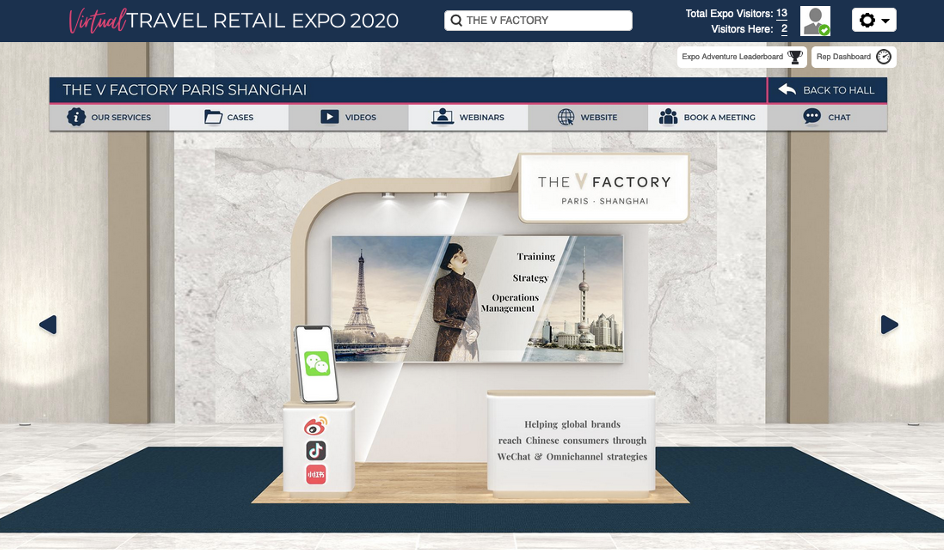
What is the major focus for The V Factory at the Virtual Travel Retail Expo? What services or products will you emphasise and showcase?
At The V Factory in both Paris and Shanghai, we support our clients in defining and implementing WeChat and omnichannel strategies to engage Chinese audiences, both in China and abroad.
We support companies through training sessions that teach them how to leverage Chinese digital ecosystem. We also offer strategic consulting services to analyse current trends and recommend dedicated action plans to help clients reach their goals in the Chinese market. We also help with managing operations to roll out and implement the recommended strategies.
The Chinese market is evolving extremely quickly — even more so over the last few months — especially in terms of usage and consumption patterns. It is more important than ever to understand the Chinese market, adapt to changing market demands and be prepared for the rebound of the outbound travel market.
Depending on the digital landscape and consumer demands, we leverage our expertise of the Chinese market and its digital ecosystem to help travel retail businesses better engage Chinese customers.

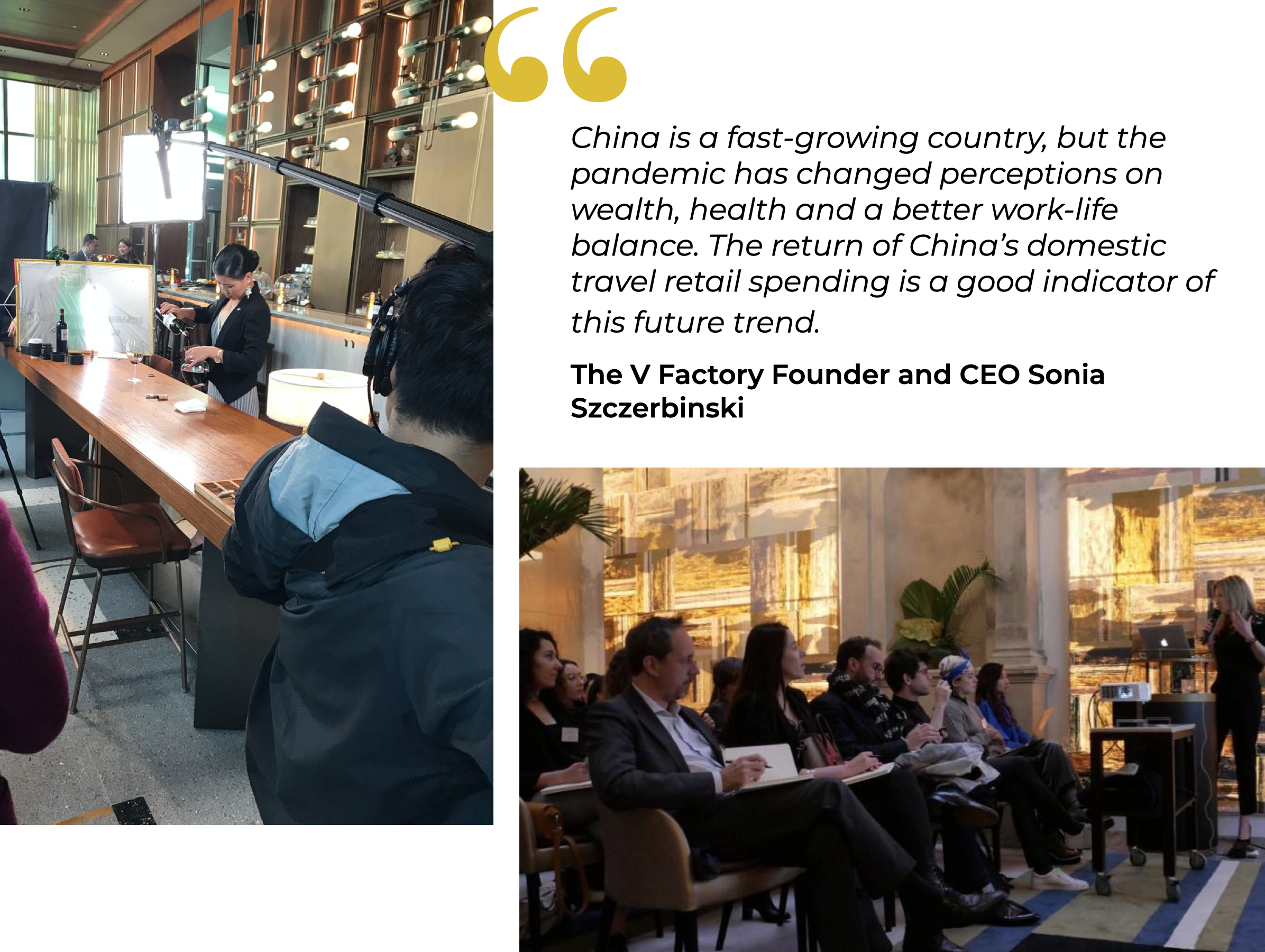
How can The V Factory help travel retail businesses leverage the WeChat opportunity in China?
First, we help companies gain a better understanding of WeChat and the Chinese social landscape in order to create a strategic omnichannel approach that engages Chinese audiences before, during and after the trip.
Understanding the Chinese market, the local mindset and the specific digital tools is the best way to improve communications and operations between different teams and partners. It also enables businesses to create effective communication strategies to reach audience, improve the coordination in the value chain and provide a better experience for customers.
Secondly, we help analyse current WeChat digital strategies and test the existing user experience. More and more brands are eager to enhance their strategies, but don’t have the necessary tools to do so. Lastly, we support businesses by proposing relevant projects, activations and tools to better serve Chinese customers and create better value for the travel retail industry in China and abroad.
Throughout the pandemic, ecommerce, short video, livestreaming and one-to-one interaction tools have become essential in daily life. It opens a range of digital channels to improve the way we interact with customers before, during and after their trip. It’s not just about content and sales, but also about service, experience and CRM.
In China today, you need to be efficient. It is a captive market and customers are more demanding than ever. However, WeChat also needs to be considered beyond China, it’s a powerful tool to engage and serve audiences throughout their trips in China and abroad.
To learn more about China’s digital landscape, we will provide several insights and pragmatic takeaways during two webinars scheduled during the Virtual Travel Retail Expo at 1400 (Paris time) on 13 October and 15 October.
What are your major targets by geography, channel or retailer type as you seek to tap into a recovering market?
We believe that we can create value for all industry stakeholders. We can help brands by proposing high-level experiences and activations and deliver a set of omnichannel services to enhance the customer journey — helping them implement projects at a global level.
We can support airports as they prepare for the return of Chinese customers and assist them in enhancing safety and creating dedicated services before departure and after arrival. We can also help retailers enhance their value chain by gathering the actions of both brands and airports.

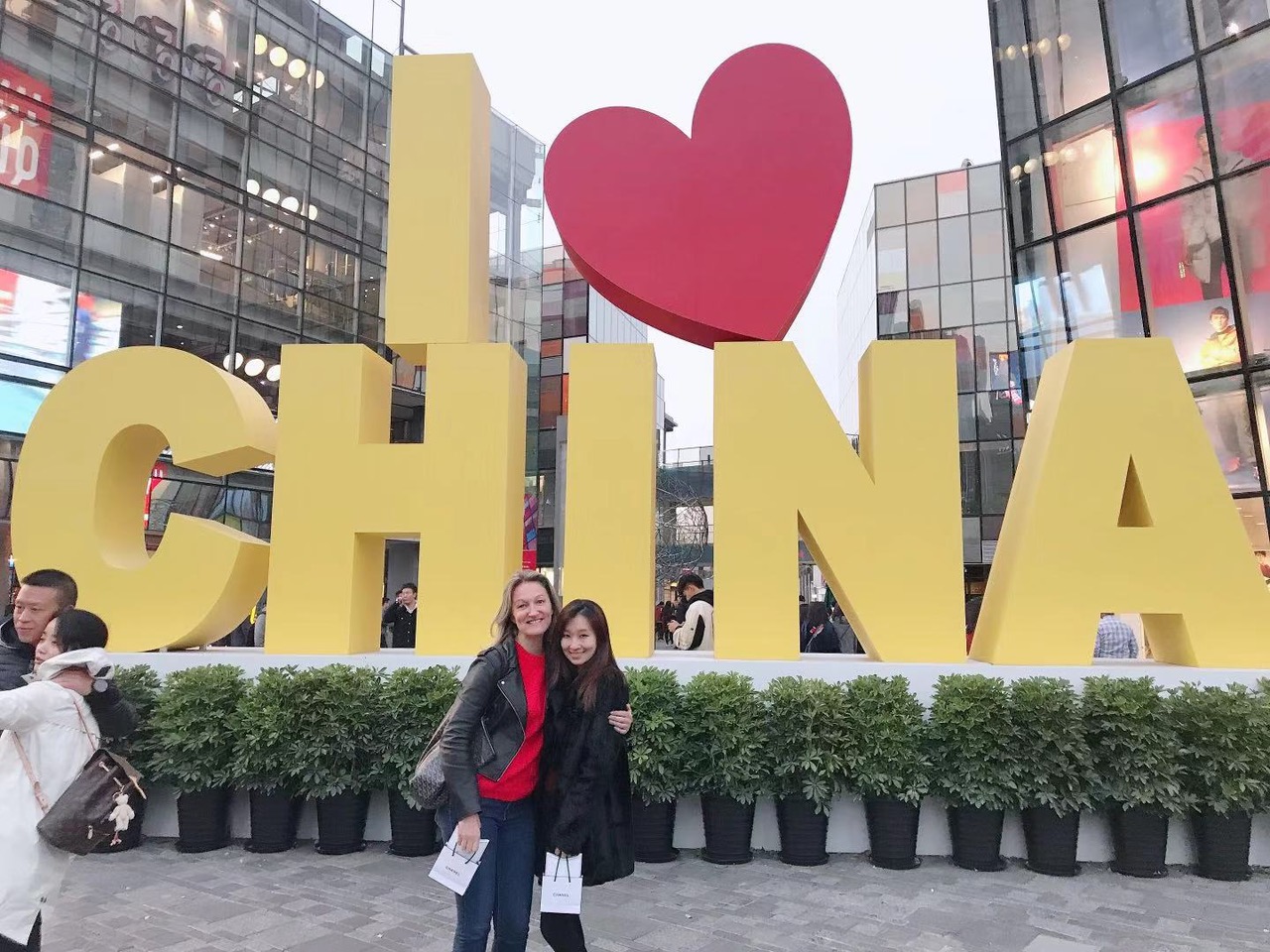
How do you view the continuing impact of COVID-19 on the wider industry?
We see the COVID-19 crisis affecting the flow of outbound travellers in the short-term, but we believe it can have a positive impact in the medium-term. This is because in China, more public safety and social health topics have been re-examined. China is a fast-growing country, but the pandemic has changed perceptions on wealth, health and a better work-life balance.
In the past, Chinese consumers would focus on work first, and would look at travel and leisure only as an afterthought. Because of the crisis, more people want to improve their quality of life. We are convinced this will increase their willingness to travel, to discover, to experiment and to shop. The return of China’s domestic travel retail spending is a good indicator of this future trend.
There will also be a major impact on the consumer expectations. Today, Chinese consumers are enjoying a strong and continuous improvement in service, experience and quality of activations. Therefore, it is critical for industry stakeholders to meet this level of expectation. We believe that Chinese consumers will only become more demanding as travel eventually returns. They will also seek the best value for money due to the changing economic circumstances. This will drive them to spend better, rather than spend less. We must be ready to offer an appropriate level of quality of service and interaction, which is why we must start preparing today.
How would you like to see industry partnerships evolve as we enter a new era for travel and travel retail?
We are convinced that it is now the perfect moment to adopt a more global approach of the customer journey. Providing a seamless customer experience is essential. A Chinese customer doesn’t not care what travel retail region he belongs to, he just wants to be served at a high-standard.
We believe that these current times offer an opportunity to rethink the way the industry works together. Brands, airports and retailers should collaborate to enter this new era and serve the strategic Chinese audience in order to increase engagement, sales
